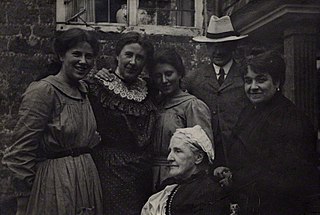A Quote by Albert Einstein
It is true that the grasping of truth is not possible without empirical basis. However, the deeper we penetrate and the more extensive and embracing our theories become the less empirical knowledge is needed to determine those theories.
Related Quotes
I have made some headway in addressing these questions, however, and succeeded in explaining how it is that the category of knowledge might play an important role in empirical theories. To the extent that talk of knowledge can be shown to play an explanatory role in such theories, the analogy I wish to make with paradigm natural kinds such as acids and aluminum starts to make a good deal of sense. This is, of course, connected with the issue of the role of intuitions in philosophy.
Since religion intrinsically rejects empirical methods, there should never be any attempt to reconcile scientific theories with religion. An infinitely old universe, always evolving, may not be compatible with the Book of Genesis. However, religions such as Buddhism get along without having any explicit creation mythology and are in no way contradicted by a universe without a beginning or end. Creatio ex nihilo, even as religious doctrine, only dates to around AD 200. The key is not to confuse myth and empirical results, or religion and science.
Were I disposed to consider the comparative merit of each of them [facts or theories in medical practice], I should derive most of the evils of medicine from supposed facts, and ascribe all the remedies which have been uniformly and extensively useful, to such theories as are true. Facts are combined and rendered useful only by means of theories, and the more disposed men are to reason, the more minute and extensive they become in their observations
Scientific theories need reconstruction every now and then. If they didn't need reconstruction they would be facts, not theories. The more facts we know, the less radical become the changes in our theories. Hence they are becoming more and more constant. But take the theory of gravitation; it has not been changed in four hundred years.
Our minds are specifically adapted to developing certain theories, and we have a science if the theories that are available to our minds happen to be close to true. Well, there is no particular reason to suppose that the intersection of true theories and theories that are accessible to the mind is very large. It may not be very large.
The truth is that the phenomena of artistic production are still so obscure, so baffling, we are still so far from an accurate scientific and psychological knowledge of their genesis or meaning, that we are forced to accept them as empirical facts; and empirical and non-explanatory names are the names that suit them best.
Discerning the merits of competing claims is where the empirical basis of science should play a role. I cannot stress often enough that what science is all about is not proving things to be true but proving them to be false. What fails the test of empirical reality, as determined by observation and experiment, gets thrown out like yesterday's newspaper.
It is generally believed that our science is empirical and that we draw our concepts and our mathematical constructs from the empirical data. If this were the whole truth, we should, when entering into a new field, introduce only such quantities as can directly be observed, and formulate natural laws only by means of these quantities.
One advantage of exhibiting a hierarchy of systems in this way is that it gives us some idea of the present gaps in both theoretical and empirical knowledge. Adequate theoretical models extend up to about the fourth level, and not much beyond. Empirical knowledge is deficient at practically all levels.


































